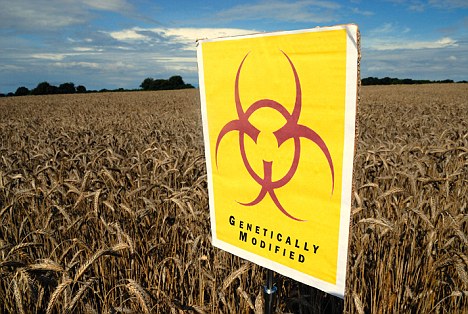Rothamsted Research has received permission from the UK Department for Environment, Food and Rural Affairs (Defra) to carry out GM Wheat field trials on the Rothamsted Farm between 2017 and 2019, it announced on Wednesday.

Commenting on the news that Rothamsted Research has received consent to go ahead with their open-air trial of GM wheat, Liz O’Neill, Director of umbrella campaign group GM Freeze said:
“GM Freeze and thirty other organisations submitted a detailed objection to this trial so we are disappointed but not surprised to hear that it is going ahead.
“We raised a number of technical concerns about the application itself and highlighted the potential for GM wheat to escape into the wild, as has happened repeatedly with GM wheat trials in the USA. But beyond all the technical detail, we believe that Rothamsted’s researchers have totally missed the point – what is the purpose of growing more wheat in the first place?
“World food production already far exceeds the needs of generations to come but people still go hungry. Nobody is starving because of some fundamental flaw with photosynthesis; they are starving because they are poor. Techno-fixes like GM wheat suck up public funding that could make a real difference if it was spent on systemic solutions like waste reduction and poverty eradication. Then we could all enjoy food that is produced responsibly, fairly and sustainably.”
GM Watch stated: “According to agrimoney.com, “The forecast world wheat surplus just keeps getting bigger and bigger” and “Wheat prices are set to fall to 15-year lows in 2016-17”. It is therefore mind-boggling as to why the genetic engineers at Rothamsted Research think it’s a good idea to genetically engineer wheat to use sunlight more efficiently and give higher yields. The last thing the world and farmers need is yet more wheat.
“In addition, the trial of this GM wheat threatens the UK wheat crop with contamination. GM wheat grown only in trials in the US has escaped repeatedly.”
Professor Christine Raines, Head of the School of Biological Sciences at the University of Essex and principal investigator for the Rothamsted research project, said: “The efficiency of the process of photosynthesis integrated over the season is the major determinant of crop yield. However, to date photosynthesis has not been used to select for high yielding crops in conventional breeding programs and represents an unexploited opportunity. But there is now evidence that improving the efficiency of photosynthesis by genetic modification is one of the promising approaches to achieve higher wheat yield potential.”
“In this project we have genetically modified wheat plants to increase the efficiency of the conversion of energy from sunlight into biomass. We have shown that these plants carry out photosynthesis more efficiently in glasshouse conditions. One of the steps in photosynthesis shown to limit this process is carried out by the enzymesedoheptulose-1,7-biphosphatase (SBPase). We have engineered GM wheat plants to produce increased levels of SBPase by introducing an SPBase gene from Brachypodium distachyon (common name stiff brome), a plant species related to wheat and used as a model in laboratory experiments” Raines added.














